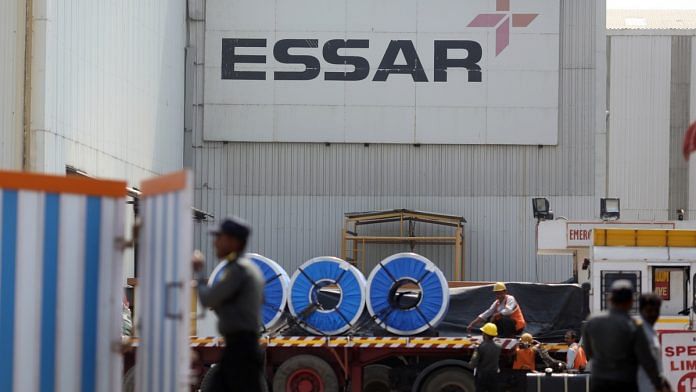New Delhi: A group of lenders led by State Bank of India, the country’s largest, foresees further distress in the nation’s bad-debt laden financial sector unless a recent court ruling in a closely watched insolvency case isn’t overturned.
An Indian court earlier this month allowed ArcelorMittal’s $6 billion purchase of Essar Steel, and also modified the distribution of the proceeds, saying the money has to be shared proportionately.
A petition filed by the banks in the country’s top court seeks to quash the bankruptcy tribunal’s ruling, court filings seen by Bloomberg show. The ruling that placed secured creditors like banks at par with unsecured ones such as vendors to the insolvent company, would lead to a “severe plunge” in the rate of recoveries and expose the banks to “grave financial distress,” they said in the petition filed Friday.
Banks are joining foreign funds including SC Lowy in predicting risks from the Essar Steel sale to India’s attempts to clean up one of the world’s worst pile of soured debt. Banks claim that the tribunal’s ruling may lead to higher lending rates with increased risk of capital, resulting in further unavailability and inaccessibility of credit in the market.
Also read: Essar case shows Bankruptcy Code is another Indian law ruined by endless litigations
“This will result in serious damage to the Indian Economy as a whole and dilapidate the entire banking system,” lenders said in the petition. Further distress in banking may force the government to make contributions to maintain required capital adequacy, they said.
To be sure, lenders are not opposed to the sale of Essar Steel to the company controlled by tycoon Lakshmi Mittal but are against redistribution of funds ordered by the tribunal and taking away of lenders’ powers in making a commercial decision about bids during the insolvency resolution process. A spokesman for SBI didn’t immediately respond to a phone call and email seeking comments.
The current ruling says that financial lenders would get 60.7% of their claims, and operational creditors, or suppliers to the plants, will also get around 60% on a pro-rata basis. The banks are seeking an immediate stay on the National Company Law Appellate Tribunal’s ruling. The supreme court has not yet allotted the case date of hearing.- Bloomberg




This is part of a long standing pattern. Courts come up with their own rules without an understanding of the big picture. There is a reason why legislature is different from the courts. The courts destroyed the housing industry over the last 70 years by non-enforcement of tenancy laws and deliberate delays. As a result, millions who could have afforded housing ended up living in slums. The story is repeated, ad nauseum, in industry after industry. The judiciary has neither the expertise nor the consent of the people to make up laws.
The normal rule is Secured lenders rank above unsecured lenders, both of whom outrank equity shareholders. That may be good enough in normal times. However, what is now unfolding is an existential threat to the banking system, with a level of NPAs at $ 200 billion, and rising, despite claims that the IBC is gaining traction and the worst is behind us. When the new government took charge in 2014, it knew there was a malignant growth that needed both chemotherapy and major surgery. The extent of the problem precluded normal economic growth from fixing it. Instead, we had stuff like Gyaan Sangam in Poona, Indradhanush, Bank Boards Bureau, periodic doses of recapitalisation funds, none of which worked, as they could not possibly have. The steady weakening of the economy exacerbated the problem. Dr Rajan did not get a gold medal for flagging the issue forcefully. 2. Economic teams are meant to cure an ailing patient. They should get a sense of the severity of the many afflictions plaguing the Indian economy, work diligently with all stakeholders in finding solutions that are marked by pragmatism, equity and fairplay. Of the many functions a government performs, helming the economy is the least amenable to spin and PR. Start selling the PSBs.